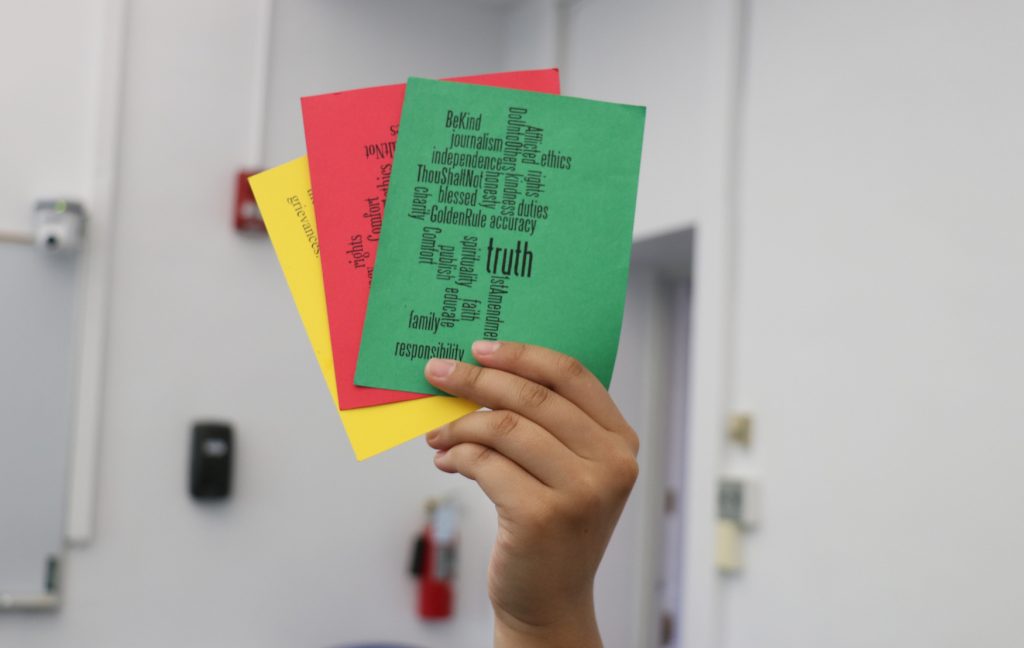Siddarth Sivaraman of Columbus, Ohio, predicted a “snooze fest” when he walked into his first ethics class at the Medill cherub program. But, after completing the curriculum, he said it “changed my life.”
Like other cherubs, Sivaraman found the ethics lessons captivating because they highlighted engaging case studies and allowed students to share differing opinions.
He recalled the sessions in which students used color-coded cards to represent their views on whether or not something controversial should be published. Sivaraman said he appreciated being able to step into real-life scenarios.
“We try to make sure that they are realistic examples that students could in fact experience while they’re doing their work as junior journalists,” said Medill professor and cherub instructor Ava Thompson Greenwell, who has been co-leading the lessons since 2019. “We want you to feel that feeling that a real journalist would experience.”
While discussing the cases, Sivaraman remembers thinking to himself that “not everyone has the same kind of moral compass that I do.” He changed his opinions on several of the cases after hearing from peers and is still pondering some of the situations.
There was a session focused on photojournalism, which examined the use of jarring photos and the ethics of making alterations. One image shown to the cherubs was Stanley Forman’s 1975 Pulitzer Prize-winning photo of a child and teenager falling from a fire escape.
“It made me think a lot, just because of how striking it was,” Desiree Luo of Fremont, California, said.
Another session featured former Chicago Tribune investigative reporter Gary Marx, who spoke about the ethical dilemmas he faced while reporting abroad.
“His questions of ethics definitely challenged some people and made some people question whether they could make the same decision,” Carlo Vellandi of Ladera Ranch, California, said.
For Vellandi, the ethics lessons were an enjoyable intersection between journalism and philosophy, one of his other interests. He liked discussing ethical dilemmas filled with journalistic and moral nuances that lacked a clear answer.


